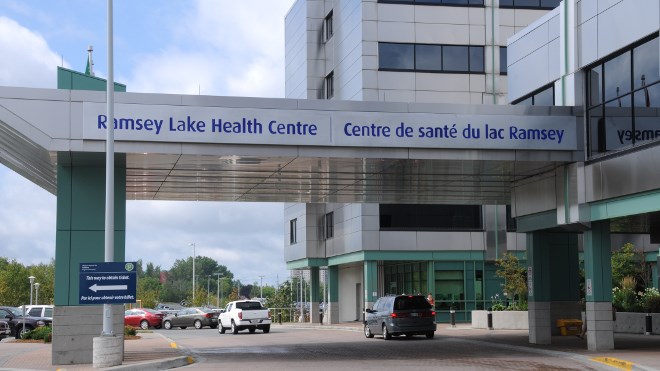Bonita Georgekish said the experiences her 79-year-old father had at Health Sciences North in the last year of his life were sometimes positive, and “sometimes not great.”
During one visit to the emergency room in 2011, staff assumed Patrick Skanes always wore an adult diaper, just because he was wearing one when he arrived at the hospital.
When he said he had to go to the bathroom, a nurse told Skanes that it was OK for him to go in his diaper, when such a thing horrified him.
“It was a little callous,” Georgekish said, speaking in a video shared at the beginning of Health Sciences North's Sept. 12 board of directors meeting.
The board regularly invites patients and families to share stories at meetings.
Skanes stayed in the hospital for several weeks before being sent home. But a few days later, his health took another turn for the worse, and he ended up back in the emergency room.
Even though Georgekish told a student doctor her father had signed a do not resuscitate form, when Skanes went into cardiac arrest while she was momentarily away from his side, staff started CPR on him. She had to tell them to stop.
In the wake of her father's death, she was left wondering about the state of communication at the hospital. “How does that happen?” she asked.
Georgekish joined the CEO Patient and Family Advisory Council last year, a group of 14 people with experiences at the hospital who advise CEO Dr. Denis Roy.
It seems Georgekish's story isn't uncommon.
Of the 33 people Roy interviewed as candidates to sit on the council, he said about 80 per cent told him they had concerns related to communication between patients, families and hospital staff.
“The communication breakdowns occur everywhere,” he said, speaking to reporters after the meeting. “This is something that we need to sensitize the staff about, that we need to talk about constantly.”
Because the council has now been around for about a year, Roy provided a report at on the progress the group has made.
True to the concerns of patients and families, many of the items the council has worked on relate to improving communication.
For example, Health Sciences North certain hospital staff are now being asked to identify their name, occupation and duty to patients and families. The practice will continue to spread through the organization.
There's also now someone who periodically circulates through the emergency department, talking to people, “for the comfort of patients.”
Patient advisers have also revised written patient material so that it's comprehensible and of value to patients.
They've also helped the hospital change the dimensions, font size and positioning of emergency department signage so it's easier to understand.
Beyond communication, the council has tackled an issue that has long been a thorn in the hospital's side – parking.
They want the hospital to explore valet service in the emergency department or a shuttle bus to far-flung parking lots, although Roy said these ideas wouldn't come cheap.
Health Sciences North, which has a shortage of parking, has been negotiating with Idylwylde Golf and Country Club to purchase a piece of land adjoining the hospital to expand its parking lot.
Roy said he expects to reach a solution to the hospital's parking woes by next month.
The council's suggestions have also led to changes to the visiting hours in the intensive care unit, which used to be so restrictive that they spawned complaints.
The hours have since been drastically increased, and there have been no more complaints.
The work being done by the CEO Patient and Family Advisory Council has definitely made a big difference, Roy said.
“The advisers made us think very carefully about the directions and processes that we put in place, either to change something or have something new.”
Join Sudbury.com+
- Messages
- Post a Listing
- Your Listings
- Your Profile
- Your Subscriptions
- Your Likes
- Your Business
- Support Local News
- Payment History
Sudbury.com+ members
Already a +member?
Not a +member?
Sign up for a Sudbury.com+ account for instant access to upcoming contests, local offers, auctions and so much more.
